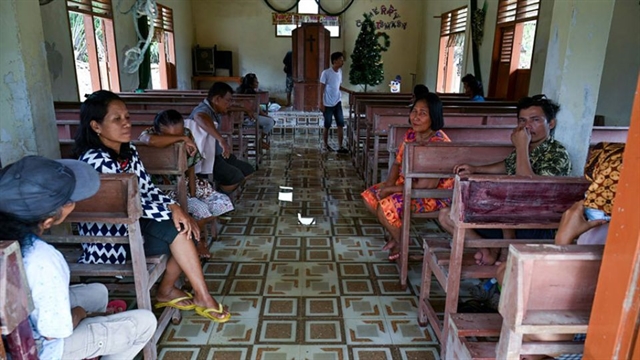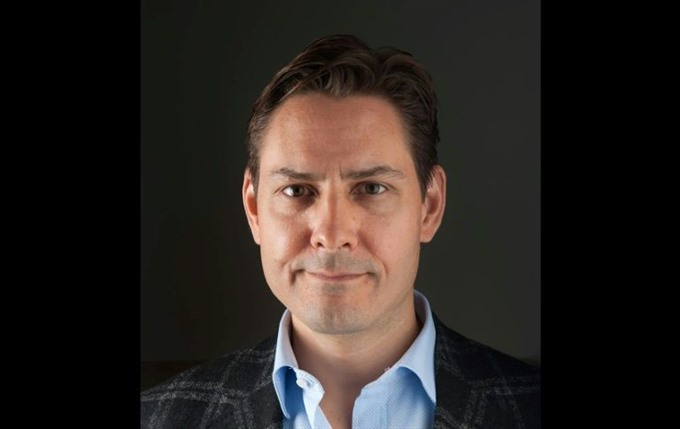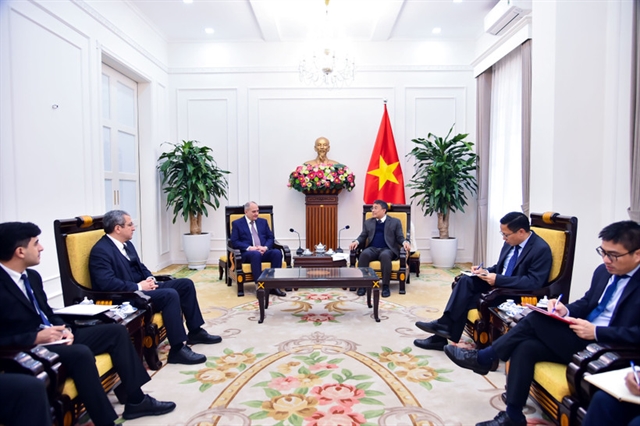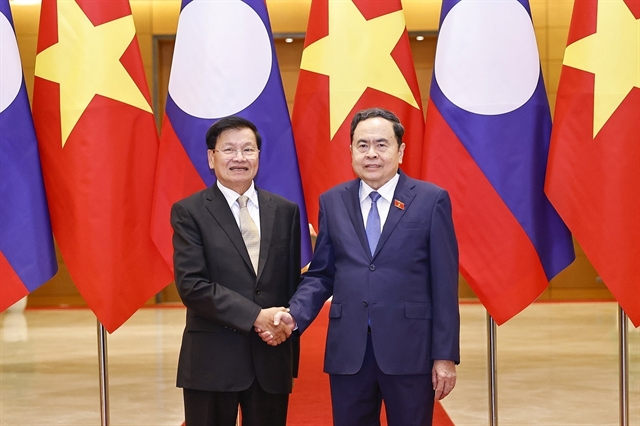 World
World

China has arrested a third Canadian national, Ottawa said Wednesday - a move that comes amid an already tense diplomatic spat with Beijing over the arrest of a Chinese telecom executive.
 |
| Former Canadian diplomat Michael Kovrig is one of three Canadians who have been arrested in China - Kovrig was working for the International Crisis Group think tank. — AFP/VNA Photo |
OTTAWA — China has arrested a third Canadian national, Ottawa said Wednesday - a move that comes amid an already tense diplomatic spat with Beijing over the arrest of a Chinese telecom executive.
Canadian Prime Minister Justin Trudeau however emphasised that the arrest did not seem to be linked to a former diplomat and an entrepreneur held for allegedly endangering China’s national security.
"We are looking into the details (but) this most recent one doesn’t seem to fit the pattern set by the previous two," Trudeau told a press conference.
Earlier, foreign ministry spokeswoman Maegan Graveline said the government was "aware" of another Canadian citizen being detained in China, without providing further details. The citizen has not been identified.
Chinese foreign ministry spokeswoman Hua Chunying told a regular press briefing that she had "not heard" about the detention, first reported by Canada’s daily National Post.
All three arrests follow the detention of Huawei chief financial officer Meng Wanzhou on December 1 in Vancouver on a US request.
Meng was released on bail last week pending a US extradition hearing on US fraud charges related to sanctions-breaking business dealings with Iran.
China detained former Canadian diplomat Michael Kovrig and China-based business consultant Michael Spavor on December 10.
No link has officially been made between the cases, but suspicions are mounting that China is holding at least two of the Canadian nationals in retaliation.
Kovrig took an unpaid leave from his diplomatic post last year to work as a Hong Kong-based senior advisor at the International Crisis Group think tank, while Spavor facilitates trips to North Korea, including visits by former NBA star Dennis Rodman.
Collateral damage
Beijing threatened Canada with "grave consequences" if Meng was not freed and Chinese state-run media lashed out at the arrest, saying it was politically motivated.
Ottawa has repeatedly said Meng’s arrest was not political but rather part of a judicial process in keeping with an extradition treaty with Washington.
Canadian officials have been granted consular access to both Kovrig and Spavor.
But Trudeau told Toronto’s Citytv last week that Ottawa was still "trying to figure out why, (and) trying to work with China to demonstrate that this not acceptable."
Pressed at his end-of-year press conference Wednesday to explain why he had not personally intervened in the case, for example, by calling China’s President Xi Jinping, Trudeau said: "Political posturing or political statements aren’t necessarily going to contribute, (and) in some cases they might actually hinder efforts to secure Canadians’ release."
Bob Rae, who briefly led Canada’s Liberal Party (2011-13) before handing the reins to Trudeau, urged the government to develop a "robust, principled and effective response" to Beijing’s actions.
"This looks too much like hostage taking," he said on Twitter.
US Secretary of State Mike Pompeo, meanwhile, branded the arrests "unacceptable" after talks last week with Canadian Foreign Minister Chrystia Freeland, who said Meng was being treated in accordance with the law.
China however has said that Canada and the United States overstepped their authority and that Meng, who was arrested while changing planes in Vancouver, broke no laws.
The International Crisis Group stressed that "at no point has there been any hint of any wrongdoing" by Kovrig.
"Far from being secretive, Michael’s work was open for all to see, Chinese officials first and foremost," ICG president and CEO Robert Malley said in a statement, referring to the detainee’s past and present roles.
Observers say Canada is increasingly looking like collateral damage in a simmering US-China trade war, with Beijing at the same time working to ease trade tensions with Washington.
Beijing said Friday it would suspend extra tariffs on US-made cars and auto parts for three months from January 1.
The move followed an accord between Xi and US President Donald Trump - reached on the sidelines of the G20 summit in Buenos Aires on December 1, the very day Meng was arrested - to hold off on new tariffs set to take effect in the new year and instead start negotiations on trade concerns.
"This is one of the situations you get in when the two largest economies in the world, China and the United States, start picking a fight with each other," Trudeau has said.
"The escalating trade war between them is going to have all sorts of unintended consequences for Canada, potentially the entire global economy. We’re very worried about that." — AFP





 Brandinfo
Brandinfo